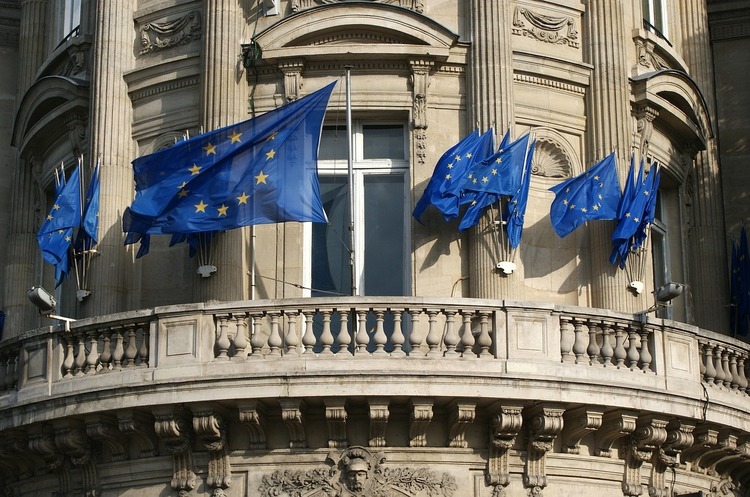The EU may transfer up to 3 billion euros to Ukraine from Russia's frozen reserves
The first stage of the discussion will take place on Thursday with the participation of representatives of Belgium, Germany, Spain, Italy and France

The European Commission has prepared a plan to transfer profits from Russia's foreign exchange reserves to Ukraine. At the discussion with the countries that will begin on Thursday, the EC representatives will talk about a legally sound way to tax such profits and transfer them to the EU budget. From there, they can be given to Ukraine.
Source. Bloomberg reports with reference to the draft document.
The frozen reserves of the Bank of Russia are expected to generate about 3 billion euros of profit.
More than half of the assets are funds on accounts and deposits, in addition, a "significant part" are securities, which in the next 2-3 years will also become money as coupons are paid and redeemed. The amount of frozen assets exceeds €200 billion, most of which are held in the Euroclear depository, where they generated almost €750 million in profit by the first quarter of this year.
The proposal of the European Commission's working group consists of three points, the document says:
1) to define specific financial obligations and their amounts;
2) to formulate requirements for central depositories to separate the balances of funds;
3) transfer the profit to the EU budget.
According to a Bloomberg source, the first stage of the discussion will be held on Thursday with representatives of Belgium, Germany, France, Italy and Spain, and the following week the rest of the EU will join the work.
Initially, the EU suggested transferring frozen Russian reserves to Kyiv, but lawyers concluded that they could not be confiscated, and there were even risks in case of investment with the aim of transferring the income to Ukraine.
"There are no sufficient legal grounds to allow the confiscation of frozen assets only on the grounds that the use of these assets is restricted by the European Union," the EC working group's report said. The European Central Bank warned that the legal status of central bank assets, which have immunity, must be respected.
As a result, Brussels settled on another option – to use income tax on frozen assets.
Background. As a reminder, the United States froze the assets of Indian diamond companies for their cooperation with Russia's Alrosa.
If you have read this article to the end, we hope that means it was useful for you.
We work to ensure that our journalistic and analytical work is of high quality, and we strive to perform it as competently as possible. This also requires financial independence. Support us for only UAH 196 per month.
Become a Mind subscriber for just USD 5 per month and support the development of independent business journalism!
You can unsubscribe at any time in your LIQPAY account or by sending us an email: [email protected]



